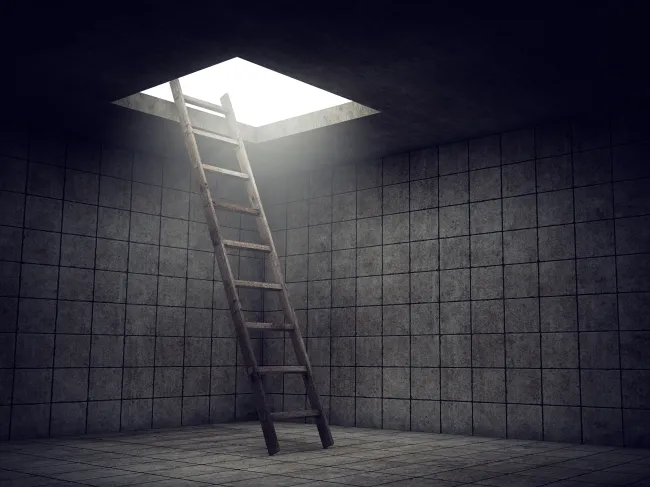With the advent of representative democracy over a century ago in most of the West, the popular belief was that the “rule of the few” would be relegated to the dustbin of History. This never happened of course, as has become clearer to the “many” over the decades. Indeed, the ruling Western oligarchy has become more visible than before, too brazen in its attempts to ram through its globalist agenda on the world.
The illusion of representative democracy has also been fading as social and economic conditions in the West worsen.
On the one hand,
monetary and immigration policies that have been implemented over the long term
and without democratic legitimacy, is affecting the very fabric of Western
societies. On the other hand, the democratic process itself has contributed to the growth of state interventionism
for over a century, with disastrous
effects.
For these
reasons, representative democracy can certainly not be associated with freedom,
notwithstanding the conventional wisdom. To do so would mean that the essence
of freedom, namely the protection of property rights, is pushed to the
background. Democracy is not a bulwark against the violation of private
property, on the contrary. As Ludwig von Mises wrote in Nation, State and Economy (1919), “democracy
is the best means for realizing socialism.”
The reality
is that the political system known as representative democracy is not
“democratic” in the etymological sense of “rule of the people”. Genuine popular
rule can never be achieved by a political system; the only way the people
can rule is when they are individually free, politically and economically. This
should be the real definition of “democracy”.
Real Democracy Is the Right to Self-Determination
Politically,
the rule of the people can only mean the right to self-determination. Mises defined it in this way: “democracy is self-determination,
self-government, self-rule.” But he clarified that the focus is on the individual: “it is
not the right of self-determination of a delimited
national unit, but the right of the inhabitants of every territory to decide on
the state to which they wish to belong.”
In other
words, individuals should have the right to secede from a state, politically
and legally, if they so wish. Thus, real “democracy” also means the right to secession; political freedom increases for
any minority, region, or town that is allowed to decide not be ruled by a
particular nation-state.
Secession
could naturally lead to the independence of the seceding unit. Such complete self-determination,
in particular at the regional or township level would be an important move
towards freedom for those concerned, because smaller states are generally freer and wealthier than bigger ones, as the case of Liechtenstein shows.
The
transition to such self-determination from largely centrally controlled
societies is of course not straight-forward. A first step could be an increase
in support for the principle of subsidiarity and fiscal decentralization.
Actual
secession would likely lead to thorny issues of settling private property
claims and the possible voluntary relocation of individuals who reject
secession. A large obstacle is the political one, since even though secessions
do happen, such initiatives are usually harshly repelled by the controlling
state, including in representative “democracies”. And when they succeed, it is
often with the self-serving support of external political forces.
Real Democracy Is the Free Market
Economically,
the rule of the people can only exist in the free market, where exchanges take
place without any interference from the state. This is what Mises called in
Human Action (1949), the “democracy of the market”.
It is the state’s
intervention in the market that gives political power to the ruling minority and restricts in innumerable ways the
development and progress of society, not least at an individual level. The
majority can thus only have more influence over the direction of society
through a limitation of this political power. An increase in freedom, i.e. more
voluntary and unforced exchange, thus requires the reduction of state power
over society.
The free market
is the only social order that is based on popular sovereignty understood as the
right to choose. Only the free-market economy allows the choices of millions of
individuals to be considered, not once every few years at the ballot boxes, but
every day, tens or even hundreds of times a day for each individual. As Mises
wrote, “capitalism is the consummation of the self-determination of the
consumers”. Real democracy can thus only exist in the free market.
Conclusion
These two descriptions
of real democracy, namely as the right to secession and as the free market,
represent two sides of the same coin; the self-determination of the individual
at a political and economic level. Real democracy can therefore only be freedom,
in the sense of the absence of state intervention in society.
IIt is clear that the realization of such real democracy anywhere today would be difficult to say the least. Indeed, it may not come about in the pure forms described above. However, even from a pragmatic point of view, a wider recognition among the people of the principles and the benefits of self-determination has become absolutely necessary.
The statist
impasse and social malaise in which Western societies currently find themselves
makes urgent such an understanding of this other meaning of democracy. Public
opinion cannot favor freedom today because of the restriction of the
circulation of ideas of freedom in society combined with the prevailing statist
propaganda.
As economic and political conditions worsen, it will therefore become likelier that a major crisis or political violence, or both, will make popular the idea that real democracy can only be freedom. The current times of uncertainty therefore represent a risk of even tighter control from the top, but also an opportunity for liberty that should be seized.

No comments:
Post a Comment